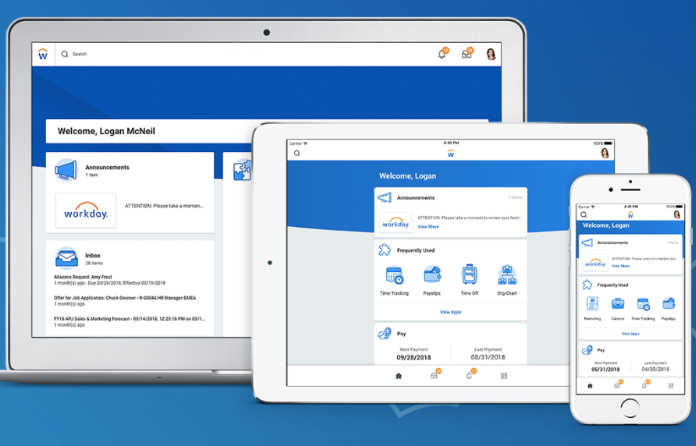
Workday gave partners a “sneak peek” of a new blockchain-powered credentialing platform at Workday Altitude, its partners and services conference. The company has also begun alpha testing the service.
In a blog post, Senior Vice President Jon Ruggiero said the effort, which he didn’t name, has been driven by three factors: the evolving workforce, growing privacy expectations and the maturing of technologies like blockchain.
.@Workday's new credentialing efforts driven by evolving workforce, privacy expectations & maturing technologies like #blockchain. #HR #HRTech Click To TweetWorkday’s new approach is “a natural progression because of our system architecture and massive data set, he wrote.” The company’s database of some 40 million workers includes over 100 million credentials and 70 million job applications, as well as employment records, salary history, certifications, training records, skills and licenses. Existing machine learning capabilities allow Workday to identify and classify skills, and could be used to verify them.
Although he provided few details, Ruggiero said the company has combined blockchain with privacy protections to provide users with more control over their data and employers with greater confidence in their authenticity.
Can Blockchain Drive Credentialing?
Blockchain’s rise and improved mobile security have allowed Workday to “imagine a new form of digital credential,” Ruggiero said. Through blockchain, data can be moved between parties while maintaining proof it hasn’t been modified.
All this comes at a time when credentialing has become more complex. As Ruggiero points out, today’s credentials are often composed of myriad types of data, from skills to certifications to work experience.
Yet credentialing hasn’t kept up with technology: Credentials are “still largely offline and paper-based, and verifying a credential often requires a lot of manual effort and time,” Ruggiero said. That means recruiting and onboarding workers can take an inordinate amount of time, which is all the more painful when so many employers face talent shortages.
The nature of the workforce makes things credentialing more complicated, as well. Today’s workforce is mobile, distributed and includes more types of workers: contingent employees like contractors and gig workers, as well as salaried and hourly staff.
Workday says its project emphasizes open standards, and that it’s working with organizations like W3C and the Decentralized Identity Foundation to make sure the technology aligns with their approaches.
Ruggiero said Workday would release more information about the project later in 2019.
In May, Workday said its fiscal first quarter revenues rose 33.4 percent year-on-year to $825.1 million. Subscription revenue was $701.0 million, an increase of 34.3 percent.
Sign up for our newsletter here.
Image: Workday














